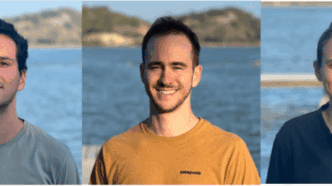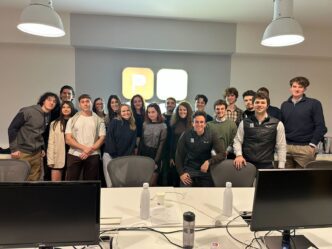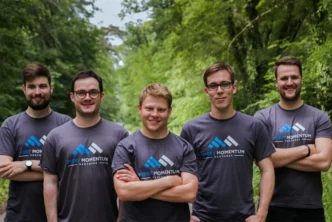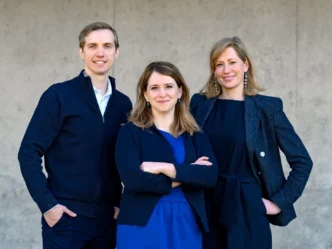Europe’s biodiversity is in crisis, and France is at the center of the storm. Nearly one-third of the country’s wildlife species face extinction, and each year, 25,000 hectares of land vanish to development — a rate equivalent to losing four football fields every hour. Tackling this alarming trend is Versant, a Paris-based nature tech startup using AI and ecological data to help infrastructure developers build responsibly while preserving nature.
Backed by Antler — the world’s most active early-stage VC — and joined by French impact fund Climate Leaders Fast Track and several influential business angels, Versant has secured €500,000 in its first funding round. The round includes €350,000 in equity and €150,000 in grants, thanks to support from the European Space Agency’s Business Incubation Centre and BPI France.
Reimagining Land Use to Support Nature and Development
Founded in 2024 by Martin de Stoppani and Luc Bettaieb, Versant was born from a shared vision during an Antler founder residency in Paris. With backgrounds in startup operations, deeptech, and nature-focused VC, the duo set out to address one of the most pressing bottlenecks in ecological project planning: the lack of quality biodiversity data and trained naturalists.
As de Stoppani explains, many renewable energy developers are stuck in costly delays and forced to make poor environmental decisions due to this data shortage. Versant’s platform aims to change that by offering a fast, transparent, and tech-driven way to incorporate nature into project development. Already, the startup has partnered with industry leaders like EDF Renouvelables and identified over 50 hectares of land with high restoration potential.
“Our mission is to make biodiversity integration seamless from the earliest stages of infrastructure planning,” de Stoppani says. “It shouldn’t be an afterthought.”
Tech-Powered Tools for a Biodiversity Breakthrough
Under strict French and EU environmental laws, any new infrastructure must include a biodiversity impact assessment. Developers are required to avoid and reduce environmental harm, and if that’s not enough, they must compensate for the damage by restoring equivalent biodiversity on nearby degraded land — a principle known as “ecological compensation.”
Versant is transforming how this process works. Instead of relying on outdated, manual searches for suitable land, their deeptech platform analyzes vast datasets — from satellite imagery to ecological reports — to identify and qualify land ideal for restoration. A standout feature is their species distribution modelling, which uses advanced algorithms and ecological insights to pinpoint where biodiversity restoration will be most effective.
According to de Stoppani, species presence plays a central role in their models. Their first product is already helping developers quickly locate and assess land for compensatory measures, saving time while boosting environmental outcomes.
A Broader Vision for Greener Infrastructure Across Europe
While Versant’s current focus is on renewable energy, the company is preparing to expand into other sectors where ecological compliance is becoming increasingly vital — such as transportation, industrial infrastructure, and urban development. Driven by evolving EU environmental directives, the need for smarter, data-driven tools is only growing.
“Our goal is to become the leading platform for managing ecological impact across Europe,” says de Stoppani. “We’re investing in stronger AI and data science capabilities to improve our predictions and decision-making. At the same time, we’re forging partnerships with ecological consultancies and compensation operators to deliver a more complete solution.”
Antler partner Christoph Klink believes Versant is exactly the kind of startup Europe needs. “Their approach combines deep sector understanding with innovative technology. Martin and Luc aren’t just building software — they’re building a new way to protect nature while supporting sustainable growth.”













